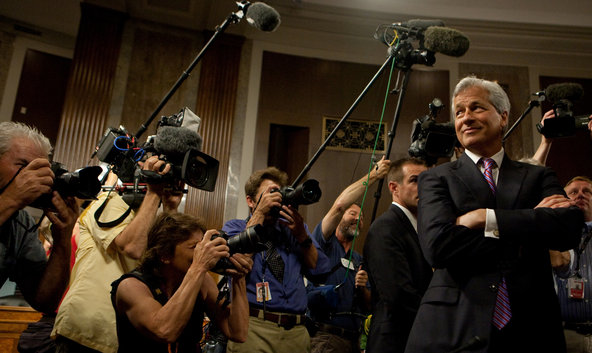The new guidelines, which the official said would take effect almost immediately, would prevent the Federal Bureau of Investigation from portraying a reporter as a co-conspirator in a criminal leak as a way to get around a legal bar on secret search warrants for reporting materials, as an agent did in a recently revealed search warrant affidavit involving a Fox News reporter.
They would also make it harder — though not impossible — for prosecutors to obtain a journalist’s calling records from telephone companies without giving news organizations advance notice, as the department recently did in obtaining a sweeping set of phone records for reporters with The Associated Press. Notifying news organizations in advance would give them a chance to contest the request in court.
“This is as far as the department can go on its own until Congress passes the media shield legislation,” the Justice Department official said, referring to a bill, which the Obama administration backed amid a furor over leak investigations, that would let judges rather than prosecutors be the ultimate decision-makers about subpoenas for journalists’ phone records, among other matters.
Mr. Holder briefed President Obama about the changes at the White House on Friday morning, officials said. Mr. Holder had held a series of meetings with newsroom leaders and lawyers for media companies in recent weeks.
In May, a 2010 affidavit was unsealed that sought a warrant for e-mails from the Google account of James Rosen of Fox News in which he corresponded with a State Department analyst who was suspected of leaking classified information about North Korea. The disclosure touched off a furor among journalists.
Congress, under the Privacy Protection Act, has generally forbidden search warrants for journalists’ work materials, but a federal statute makes an exception to that rule if the reporter is suspected of committing a crime. In the Fox News request, an F.B.I. agent wrote that Mr. Rosen qualified for that exception because he had violated the Espionage Act by seeking secrets to report, including by flattering the analyst and trying to conceal their communications.
No American journalist has ever been prosecuted for gathering and publishing classified information, so the language raised the prospect that the Obama administration — which has brought an unprecedented number of leak cases — was taking its crackdown to a new level. But the administration insisted that it never intended to charge Mr. Rosen.
The revision to the guidelines would essentially forbid prosecutors to use such a tactic to get around the Privacy Protection Act by imposing additional barriers to obtaining a search warrant for a reporter’s records.
The revised policy, the official said, will say that the exception to the Privacy Protection Act may be invoked only when the member of the news media “is the focus of the criminal investigation for conduct going beyond ordinary news-gathering activities.” Search warrants directed at reporters will not be allowed “if the sole purpose is the investigation of a person other than” the reporter.
In addition, the new guidelines will require the attorney general to sign off on any exception to that prohibition. Previously, a deputy assistant attorney general could do so.
The Justice Department also disclosed in May that it had obtained calling records for more than 20 telephone lines of A.P. offices and journalists, including their home phones and cellphones, in connection with an investigation into a leak about a foiled bomb plot in Yemen in 2012.

Article source: http://www.nytimes.com/2013/07/13/us/holder-to-tighten-rules-for-obtaining-reporters-data.html?partner=rss&emc=rss

